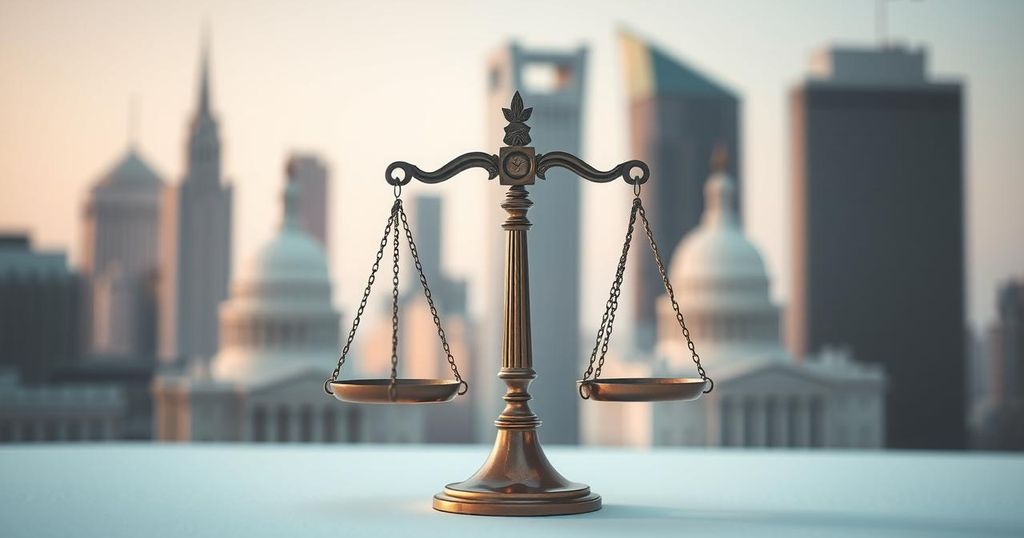Ecuador’s elections are poised for a run-off as President Daniel Noboa holds a slim lead over challenger Luisa Gonzalez. Gonzales has framed her strong performance as a victory, amidst growing concerns about the economy and rising violence. The situation highlights the country’s precarious situation, with both candidates proposing differing approaches to governance and economic stability.
Ecuador’s presidential election is heading towards a run-off, with current President Daniel Noboa maintaining a slim lead against leftist contender Luisa Gonzalez. As ballots were nearly fully counted, Noboa garnered 44.3 percent of the vote while Gonzalez followed closely with 43.8 percent. Gonzalez, a lawyer and single mother, celebrated her position as a significant victory, suggesting a ‘statistical tie’ with Noboa. This proposed run-off underscores a key moment of reckoning for Ecuador against the backdrop of its struggling economy and increased violence.
The election has been perceived as a referendum on Noboa’s hardline policies in response to escalating crime rates, including murder and kidnapping. The presence of violent drug cartels has shifted Ecuador’s reputation, transforming it from a previously safe nation to one plagued by crime. Noboa has enacted severe measures during his 15 months in office, including a state of emergency and deployment of military personnel to tackle cartel violence.
Both candidates faced the specter of violence during the campaign, following the assassination of a leading candidate in 2023. Gonzalez shared, “We’re only human. Of course, you feel afraid.” Despite fears, the election day passed without any major incidents, aside from minor infractions regarding alcohol bans. Noboa’s supporters celebrated across major cities, while Gonzalez continued to rally behind her cause, buoyed by the support of her political mentor, former President Rafael Correa.
As the youngest leader globally at 37, Noboa has relied on a vigorous social media campaign to connect with voters while advocating for tough crime policies. However, human rights groups have raised concerns regarding potential abuses due to his military strategies. Political analysts noted that Ecuador is facing a profound crisis, reminiscent of previous volatile periods in its democratic history.
The economic implications of this unrest are grim, with predictions of recession affecting both tourism and investment opportunities. To stabilize the economy, Noboa has sought assistance from the International Monetary Fund (IMF), aiming to create a fiscal buffer of $4 billion. Gonzalez has expressed her willingness to cooperate with the IMF, provided it does not impose harsh conditions that burden families.
Furthermore, Gonzalez addressed concerns regarding the expected influx of deported migrants due to U.S. policies and emphasized the need for respectful treatment of Ecuadorians abroad. “I will always demand respect for our citizens,” she stated, criticizing the current administration for failing to advocate for their welfare.
In conclusion, Ecuador’s election results indicate a closely contested race between incumbent Daniel Noboa and challenger Luisa Gonzalez, likely leading to a run-off. The election reflects widespread concerns regarding economic stability, violent crime, and human rights. Both candidates have articulated their visions for the future, but the extent of societal unrest and economic challenges may profoundly influence Ecuador’s path forward.
Original Source: www.bigcountrynewsconnection.com






